Vision2030: Special Feature
Masazumi Kikukawa
on the future of 
Make a difference
in everyday lives
by redesigning
habits: ReDesign
Representative Director,
Chairman of the Board of Directors
Masazumi Kikukawa
00.Introduction
Vision for 2030, based on Lion’s Purpose
The Lion Group has established Vision2030 as its long-term strategic framework. This framework is based on our purpose, “Make a difference in everyday lives by redesigning habits: ReDesign.”
Reaffirming our stance of contributing to society by creating good habits—the core of our business since our founding—we are looking toward 2030 as we seek to expand our businesses to serve more consumers across more aspects of daily living. This aim, and Lion’s commitment to it, are key elements of Lion’s purpose and Vision2030. Masazumi Kikukawa explains, below.
01.Purpose-Driven Management
Reframing the Creation of Habits—
the Core of Our Business since Our Founding—as Our Purpose
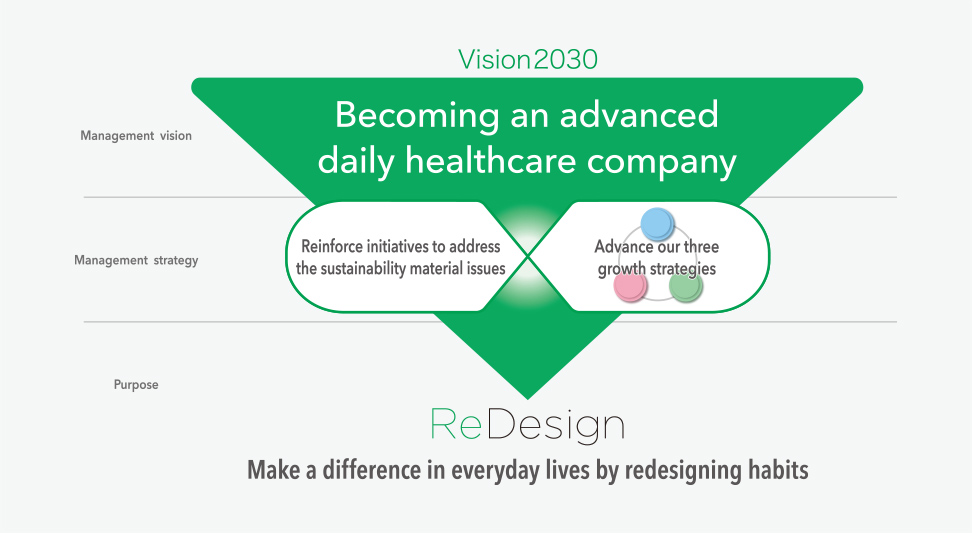
We established our purpose because we felt that it was important to clearly state how we seek to run our businesses to contribute to society in order to get all our employees oriented in the same direction and advance efficiently toward our goals. The establishment of the purpose is not the start of something brand new; rather, it serves to more clearly define the efforts we have long been engaged in, reframe them and mark a new beginning.
Since our founding, we have sought to contribute to everyday health by providing products, offering information and promoting educational activities for consumers, constantly proposing the formation of better habits.
Take, for example, the uptake of tooth brushing habits. As a result of working alongside other manufacturers, government bodies, dentistry associations, schools and other stakeholders to establish the habit of tooth brushing across society, today, approximately 80% of people in Japan brush their teeth twice a day or more, four times the level 50 years ago. Over the same 50-year period, the rate of cavities among elementary school-aged children fell to a quarter its previous level. The establishment of proper tooth brushing habits has contributed greatly to the public’s oral health.
Even more importantly, the size of the toothpaste market has also quadrupled over the past 50 years. As this shows, by helping form habits that are beneficial to consumer health while also contributing to the vitality of markets, we can build strong businesses. I believe that this is the essence of what it means to implement our purpose.
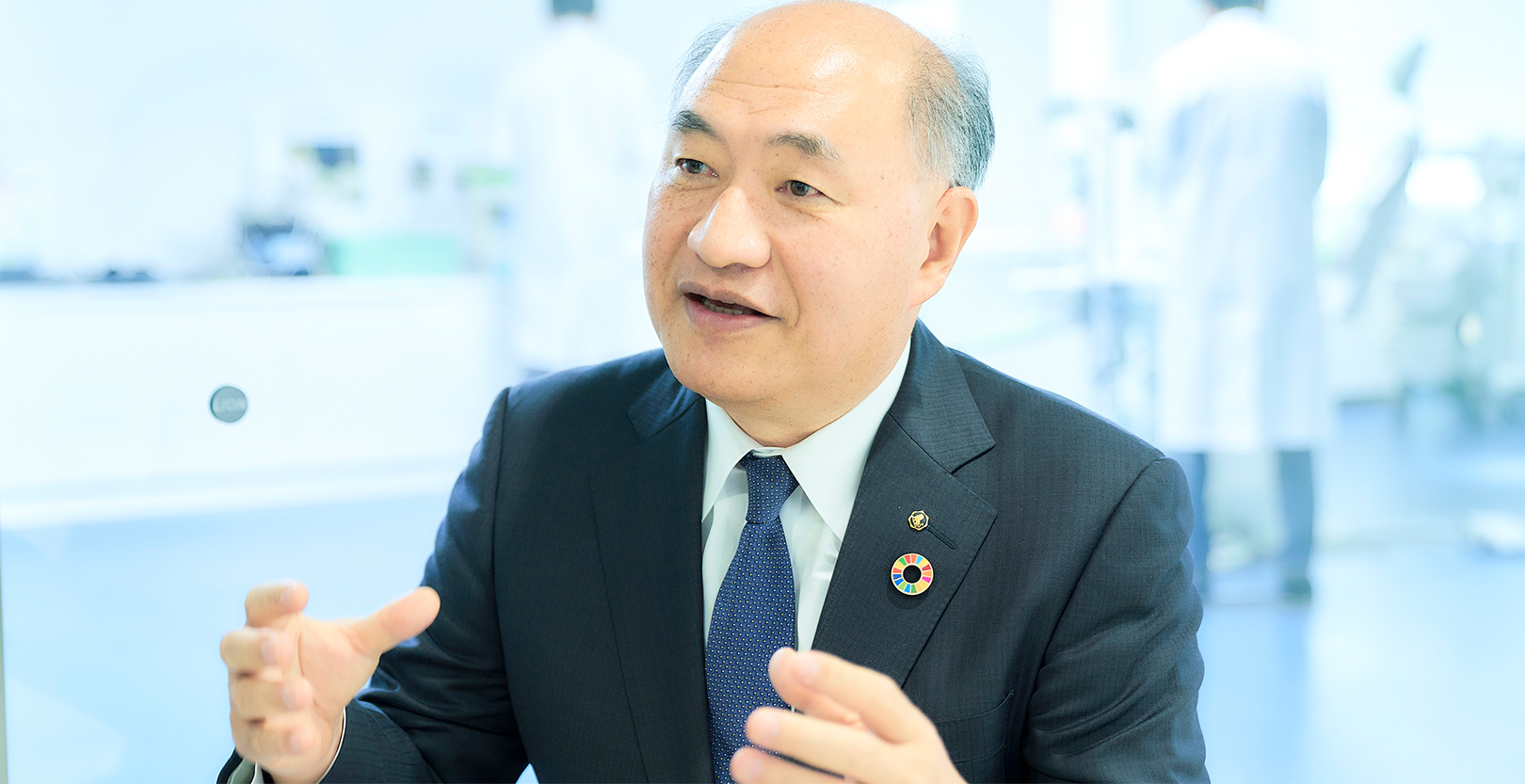
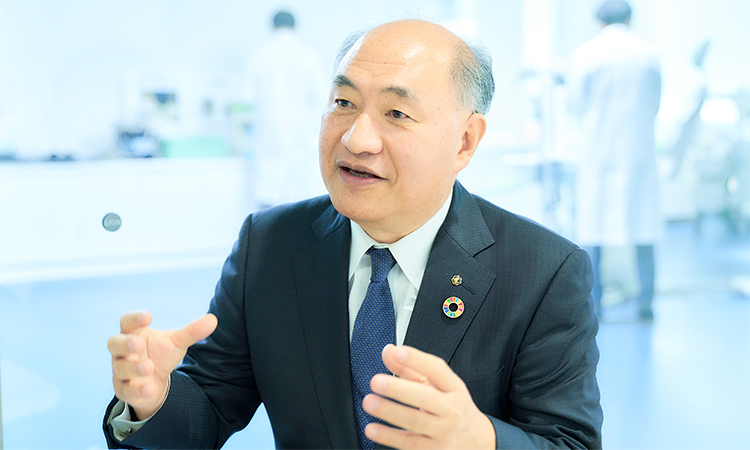
02.Growth Strategies for 2030 under Vision2030
Expanding Better Habit Creation to More Consumers across More Aspects of Daily Living
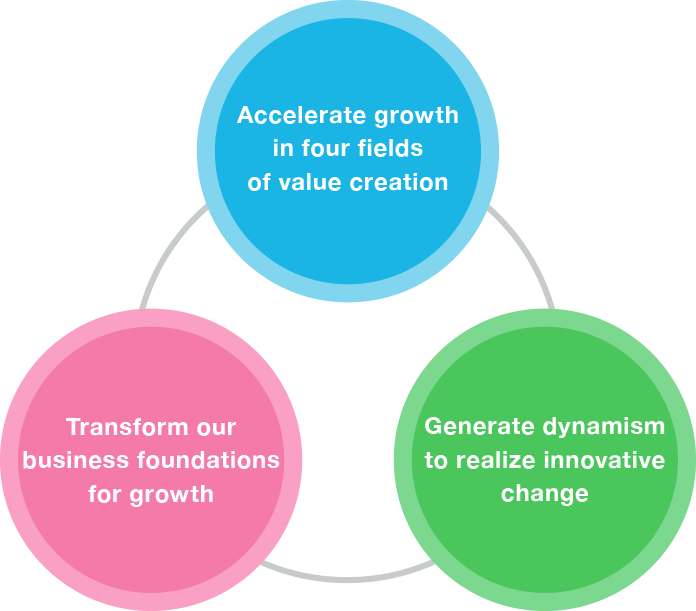
In February 2021, the Lion Group announced its long-term strategic framework, Vision2030.
Over the 130 years since its founding, in line with its corporate motto, “Fulfilling a Spirit of Love,” Lion has, time and again, solved problems in daily living and society to propose better habits. In this process of working to make each day the first step toward a brighter future, we have developed a particular way of looking for ways to improve our businesses and make a difference. This approach leads us to ask, is it enough to provide products so that the consumers we currently serve can maintain their current living habits? Or, do we need to expand our contribution to the creation of better living habits to more consumers across more aspects of daily living? This mindset of constant questioning is behind the formulation of Vision2030.
In 2012, Lion’s operating profit ratio was about 3%. This was not sufficient to allow us to make the investments needed to better benefit consumers. We embarked on management improvements aimed at growing into a lean, highly profitable company, bringing our operating profit ratio up to over 10%. However, our year-on-year sales growth is still around 2%. Increasing the speed of growth thus remains a significant challenge to realizing the expansion needed to implement our purpose.
We must increase the number of consumers we serve and by doing so achieve sales growth. Determining how to do this was the spark for the formulation of Vision2030.
We Seek to Build New Business Models Leveraging Our Sincerity and Trust
Vision2030 comprises three main growth strategies. The first is to realize business innovation that goes beyond our conventional business of producing and distributing products (“accelerate growth in four fields of value creation”). The second is to transform our business infrastructure, including the digital transformation (DX) needed to implement the first strategy (“transform our business foundations for growth”). The third is to transform our people and organizations to take on new, ambitious challenges in order to implement the first strategy (“generate dynamism to realize innovative change”).
Being a Japanese manufacturer is our identity. The sincerity we bring to manufacturing and the customer trust we have earned over the past 130 years are our strengths. However, we do not have the expertise we will need to build new business models, and acquiring it is a major task we face going forward.
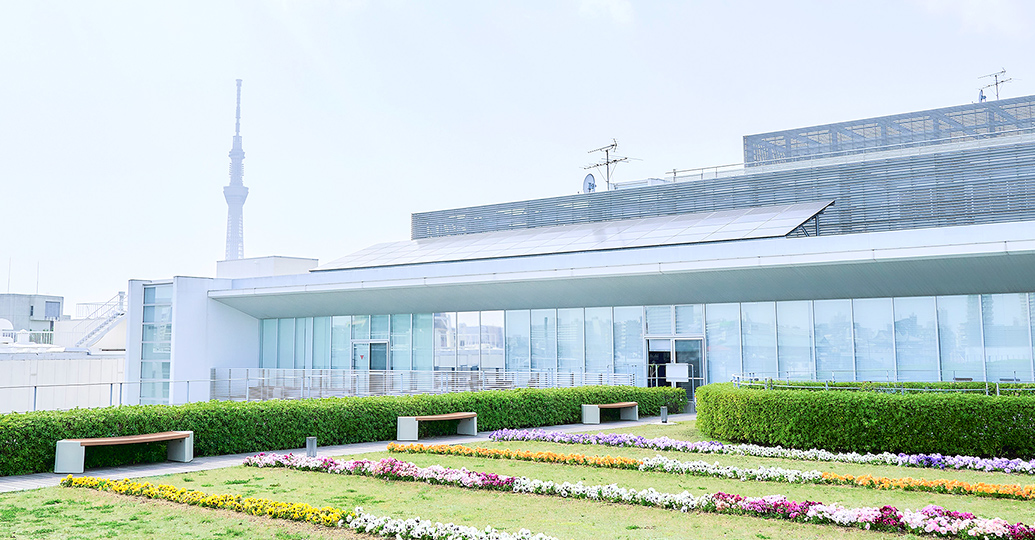
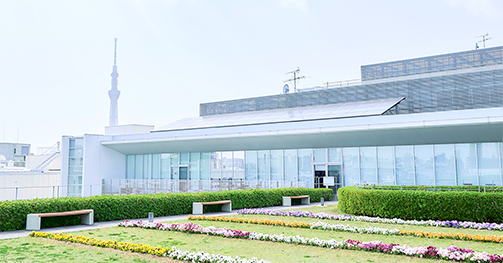
03.Taking Action that Transcends Existing Organizational Frameworks
Revising Existing Business Frameworks
to Contribute to a Higher Level of Consumer Health
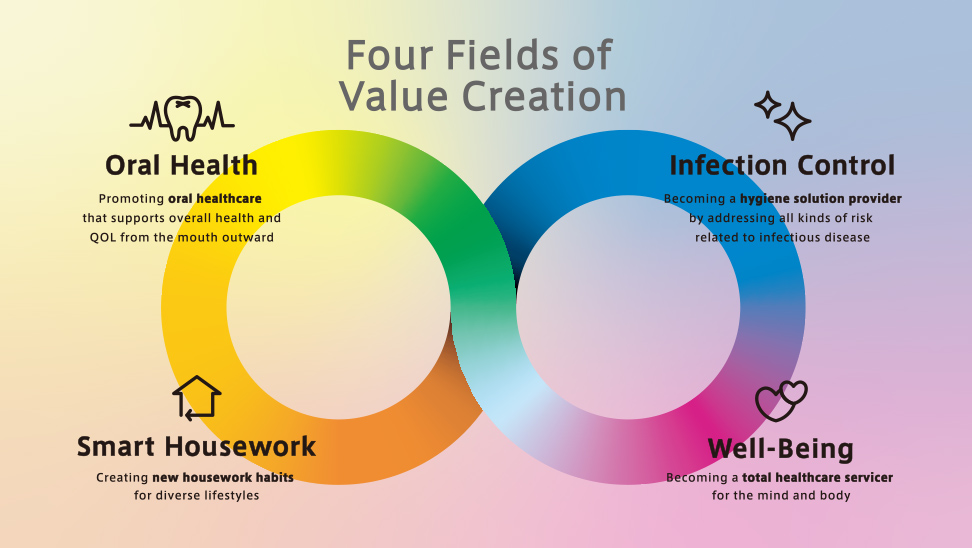
We have designated “Accelerate growth in four fields of value creation” as one of our growth strategies.
In formulating this strategy, we asked ourselves what fields would be important to realize health as we see it, and how we could expand our businesses while leveraging our existing strengths.
Health, as we see it, is based on a healthy state of mind and body for the individual, but also encompasses healthy relationships with others, such as one’s family and community.
Four Fields of Value Creation for Accelerating Growth
The first field of value creation, Oral Health, is an area of growing importance, given the deep connection between the health of the mouth and that of the entire body, as well as the advance of demographic graying in Japan and many other countries.
The second, Infection Control, refers to prevention. We have an important role to play in creating the conditions for effective infection prevention not only at the levels of the individual and family, but across society, and thereby helping maintain both physical and mental health.
In the third area, Smart Housework, as lifestyles continue to diversify, one-size-fits-all approaches to housework are no longer adequate to meet consumer needs. We will therefore work to enable new housework habits that fit individual needs.
The last area, Well-Being, is an area in which we have until now sought to contribute through the provision of over-the-counter (OTC) drugs and supplements. In the case of OTC drugs, this has allowed us to serve customers only for limited intervals at a time, while they take our products to treat specific symptoms. Going forward, we will offer products, services and habits that meet individuals’ needs based on their long-term health and lifestyles. By doing so, we will contribute to consumer health at a more advanced level.
These four fields of value creation are very different from the framework of our existing businesses. We cannot create new businesses by staying within the bounds of old forms of value. Furthermore, in addition to working alone, I believe that providing value alongside other companies is a new area that we must explore going forward.
04.The Advance of Digitalization
We Established a Dedicated DX Division to Advance Two Types of Digitalization
To advance Company-wide, cross-division digital transformation (DX), we are working toward two targets.
One target is to utilize digital technologies to increase business efficiency. For example, we are further automating factories so that they can be run with almost no manpower. We also are working to apply digital technologies through the entire supply chain in order to slim down inventories and prevent stores from running out of stocks of our products.
The other target is to leverage digital technologies to transform our businesses themselves. By analyzing our vast volume of employee dental and health checkup data to identify, for example, we are gaining new insights into the connections between oral care habits and oral conditions. Using AI with such data, we hope to be able identify and alert individuals with hidden risk factors early, so that they can take up preventive habits.
In such areas, we must make greater use of the potential that digital technologies offer. By expanding our data platform, we can further enhance the precision of our prognostics and the efficacy of the habits we offer. Building platform-based businesses is therefore an area in which we seek to push forward.
Numerous hurdles remain, but I believe our efforts in these areas will increase the quality of the habit proposals we are able to offer consumers.
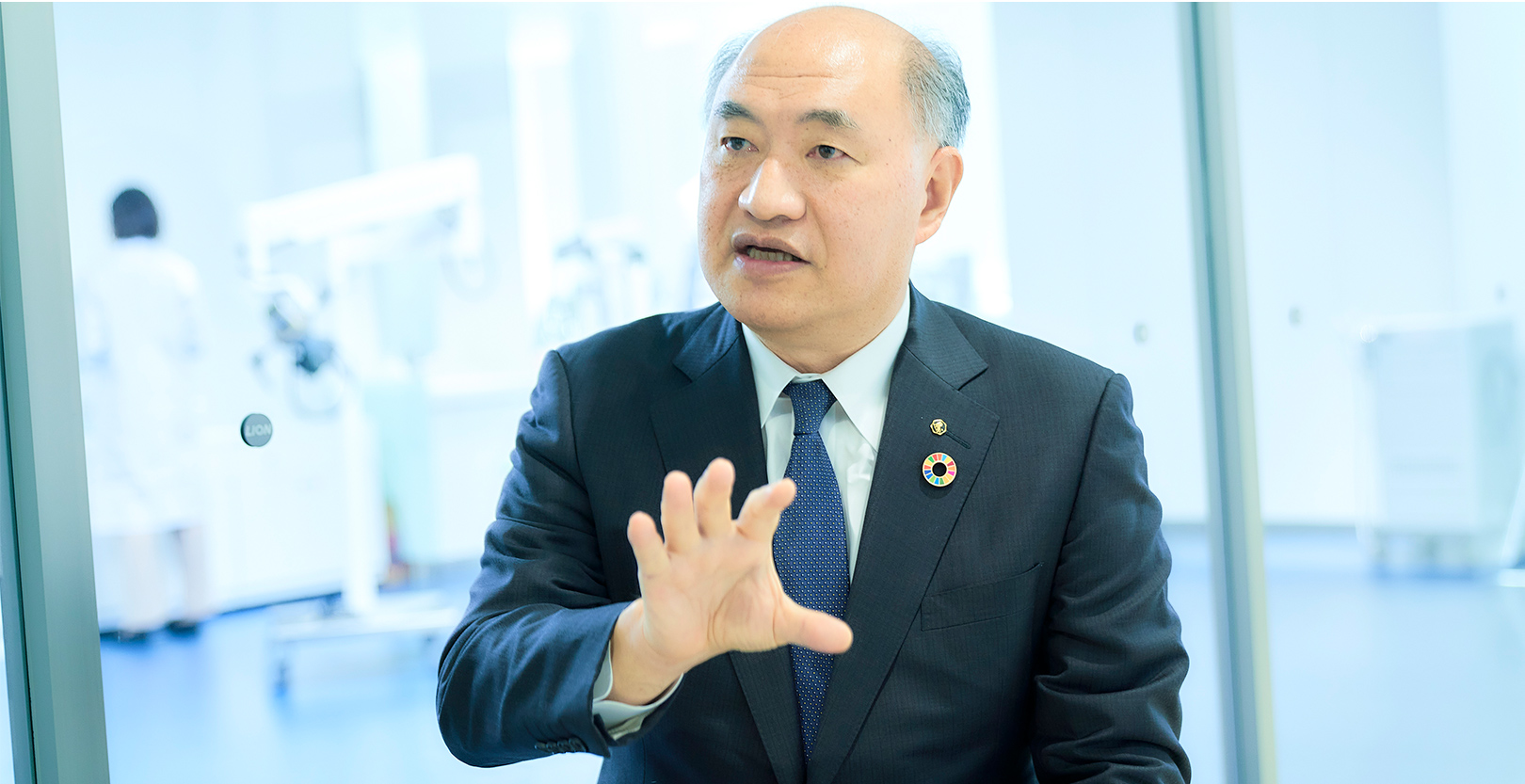
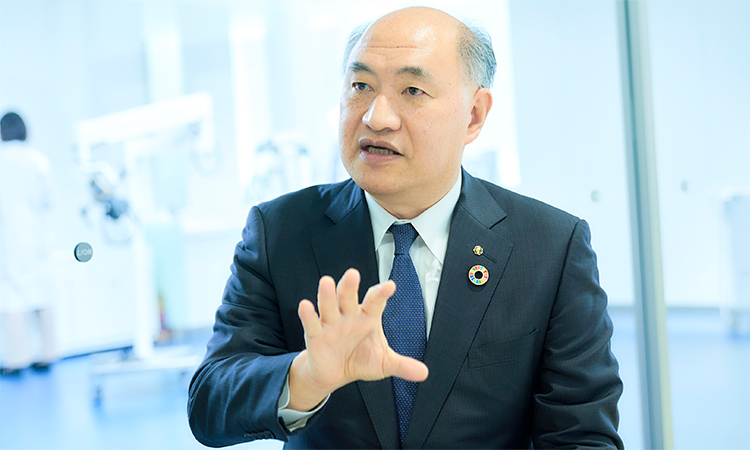
05.Corporate Branding and Human Resource Development in a Diverse Society
Increasing Awareness and Shared Commitment to Our Purpose both Externally and Internally to Enhance Employees’ Professional Fulfilment and Autonomy
In order to generate dynamism that will realize innovative change, we made a focus on corporate branding, professional fulfillment reforms and diversity & open innovation an explicit part of Vision2030. These may seem like three separate issues, but they are closely interlinked.
Corporate branding entails promoting recognition of and support for business implementation based on our purpose, both externally and internally.
Ensuring that employees all understand that the ultimate objective of their work is to implement our purpose and increasing their commitment to the purpose will lead to greater professional fulfillment.
To enhance professional fulfilment, employees must have a clear sense that they are growing into more autonomous versions of themselves. To this end, it is crucial to ensure that employees are connected with the right inspiration and opportunities to grow by proactively interacting not only with others within Lion, but a wide range of people outside the Company.
Enabling Each Individual to Grow through Diverse Interactions
Lion is proactively advancing initiatives in the areas of diversity & open innovation. We hope that by interacting with a more diverse range of people, each of our employees will gain insights into the areas they need to work on as well as their own strengths, helping them to grow.
The adoption of our side job system—in which Lion employees can work side jobs at other companies and employees of other companies can work side jobs at Lion—is a part of these efforts. In 2020, when we sought to fill eight side job positions with external human resources for a project to build new business models, we received more than 1,600 applications.
As a result of this project, in February 2021, we launched Gokinjyo Cheftomo, a service that allows users to take home dinner side dishes prepared at local restaurants. The participation of outside individuals working side jobs at Lion was a tremendously important factor in enabling us to set up this new business so quickly.
Likewise, we expect that working side jobs at other companies will enable Lion employees to quickly obtain experience and insight they would not have access to solely by working at a single company.
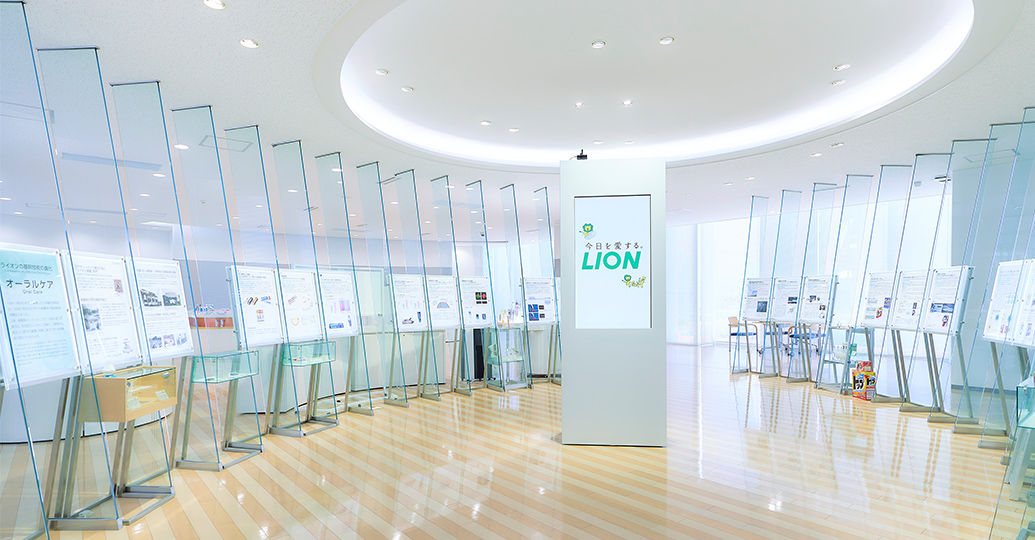


06.Overseas Business
Expanding Our Offerings to Consumers in Asia
to Raise the Portion of Net Sales from the Overseas Business to Approximately 50% by 2030
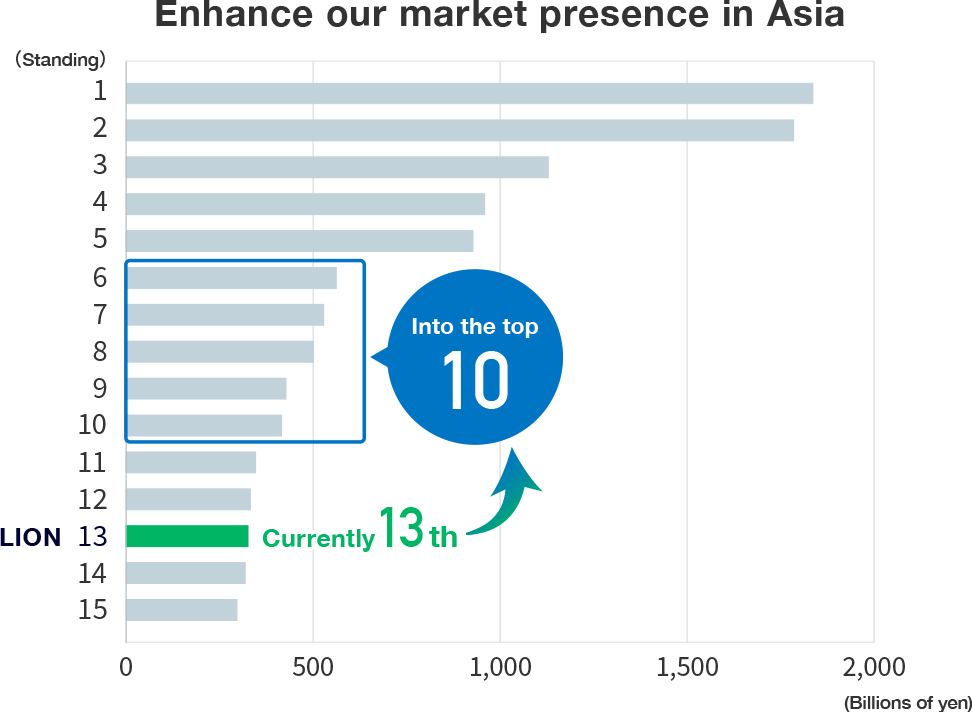
Sum of 2019 figures for the Beauty and Personal Care, Home Care and Consumer Health categories (Lion’s key markets)
Asia/Pacific region
Envisioned Financial Performance in 2030
- Net sales: Approx. ¥600 billion
- Share of net sales from the Overseas Business: Approx. 50%
- EBITDA*: Approx. ¥80 billion
- Core operating income: Approx. ¥50 billion
- ROIC: 8–12%
- ROE: 10–14%
*EBITDA: Core operating income + depreciation and amortization
To implement our purpose, we must expand our businesses to serve consumers not only in Japan, but around the world. Specifically, we are primarily targeting Asian countries for business expansion. Many consumers in Asian countries have a high degree of trust for Japanese manufacturers. This trust is a significant strength for Lion.
We envision consolidated net sales of approximately ¥600 billion in 2030, with the assumption that about 50% of this will come from the Overseas Business. To achieve this, we will implement the three growth strategies of Vision2030 overseas, as well.
In Asia, we will need to enter countries where we do not yet have a presence and expand the geographic range of our businesses.
Even in the countries where we already operate, we do not yet serve consumers across a wide range of business domains. Right now, our business is focused on, for example, oral care in some countries and on laundry detergents in others. In these countries, we will work to expand our business domains.
At the same time, we will apply the fruits of business transformation initiated in Japan to serve overseas customers across an even wider range of fields. Only by doing so will be able to raise the portion of consolidated net sales from the Overseas Business to approximately 50%.
07.Sustainability
Offering Environmentally Friendly Habits
to Realize Sustainability for the Planet
designated “Reinforce Initiatives to Address the Sustainability Material Issues” as a management strategy. In particular, we have identified “Creating Healthy Living Habits” and “Promoting Environmental Initiatives for a Sustainable Planet” as our top-priority materials issues, the areas in which we must contribute to society most.
To realize sustainability for the planet, it will be crucial for us all to shift to more environmentally friendly habits. Such a shift ties directly into the implementation of our purpose; going forward, creating habits that support not only the physical and mental health of individuals, but also the health of the global environment, will be extremely important.
For example, in Japan, around 90% of liquid toiletry products are available in refill pouches made of thin plastic film. In Europe and the United States, this figure is still around just 10%. The establishment of habits related to effectively using such pouches can significantly reduce plastic use. I call this “pouch culture.”
Pouch culture is just one example of the ways that everyday habits can have a big impact over time. By creating numerous such habits and spreading them across Asia, we hope to contribute to the protection of the global environment.
Furthermore, because pouches still use plastic, we will need to develop frameworks and technologies for collecting and reusing them to realize a higher level of recycling. This is something that Lion cannot do alone, so we will expand collaboration both within the industry and across industries.
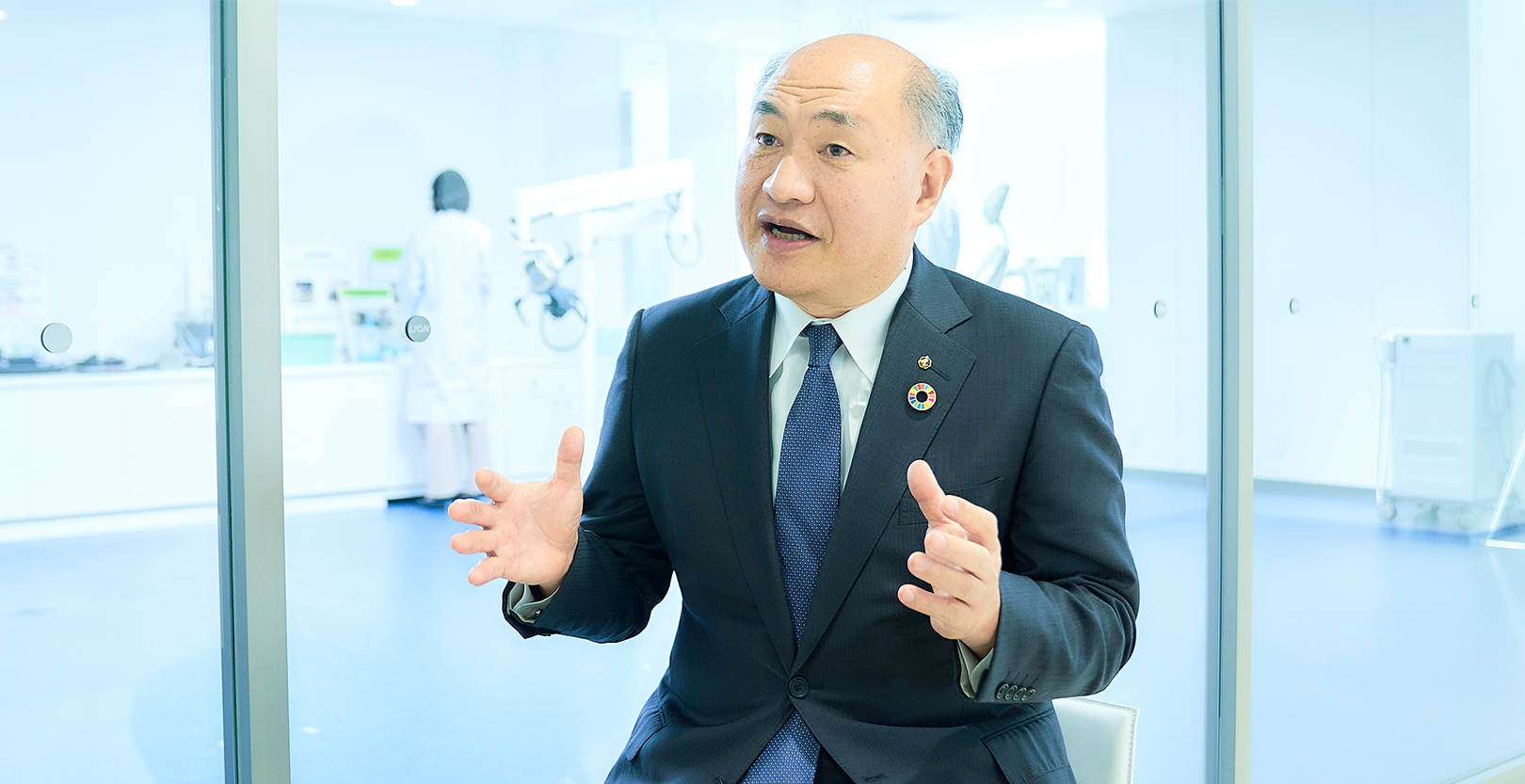
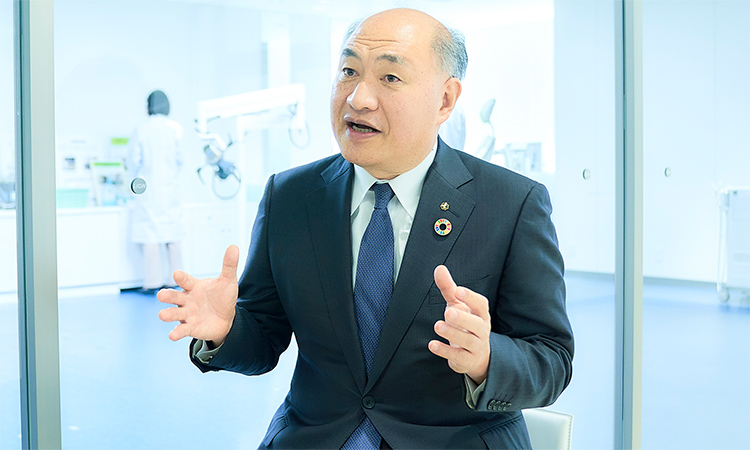
08.In Closing
Receptive to Feedback and New Ideas,
We Seek to Expand Our Businesses as We Look Toward 2030
Reaffirming our purpose, “Make a difference in everyday lives by redesigning habits: Redesign,” in the runup to 2030, we seek to expand our businesses to connect with and serve more consumers across more aspects of daily living.
As we do so, we will strive to be receptive to feedback and shifts in ideas about what it is that consumers need.
The photos on this page were taken at Lion’s Hirai Research Laboratories.

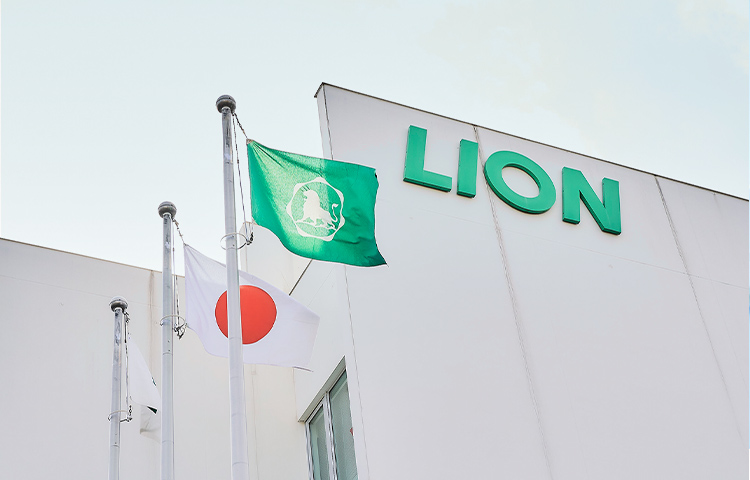
Related Information
